We engaged Economic Research Services (ERS) and Collingwood Environmental Planning (CEP) to undertake an evaluation of the programme. The evaluation aimed to identify, analyse and assess the collective impact of the 31 projects; the added value of the programme; whether it has achieved its long-term ambitions and to gather evidence of impacts, good practice and lessons learned.
The evaluation found that:
-
128,000 young people were involved in the programme
-
95% of participants felt their confidence had improved during the programme
-
86% said taking part improved their mental health
-
Young people improved more than 3,000 community spaces and created over 350 nature-rich areas for people and wildlife
Our Bright Future has shown that engaging young people in the environment and conservation has created benefits for young people. Young people were consistently found to be more confident, skilled, happier and able to find work through their involvement in the programme. The key outcomes for young people were:
-
Improved mental health and wellbeing
-
Increased self-esteem and self-confidence
-
New skills and knowledge
-
Increased employability and enhanced or influenced career aspirations
Final evaluation report and Executive summary
This final evaluation report covers the programme’s set up in 2016 to its close in 2021. The report summarises, evaluates and celebrates the achievements of Our Bright Future and shares reflections of those involved.
If you would like to view the Executive summary only, you can find it here.
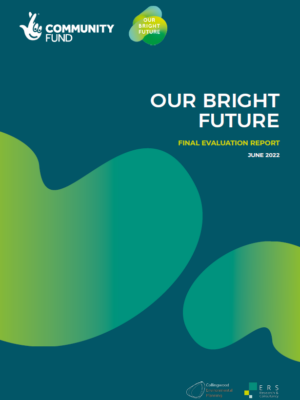
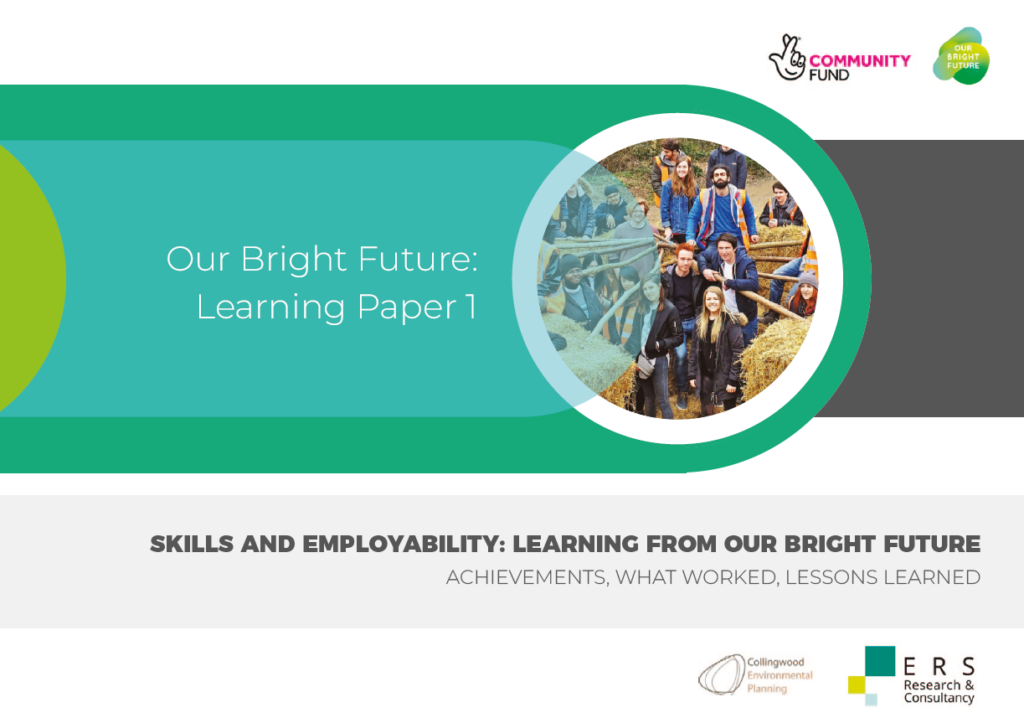
Learning paper 1 Skills and employability: learning from Our Bright Future
This paper focusses on:
-
what was successful in supporting young people to develop skills, gain qualifications and improve their employability
-
key achievements of projects and the programme related to skills and employability.
The aim of sharing these findings is to help future projects harness the natural environment to develop young people’s skills, in turn improving their life chances and ability to make changes for the environment
Learning paper 2 Engaging young people in the environment: benefits for mental health & wellbeing
The evaluation of Our Bright Future has provided further evidence that being outside and learning about the natural world have benefits for young people’s mental health and wellbeing. These achievements can be celebrated, and the lessons taken forward to design activities that harness the environment to support the wellbeing of young people. Ultimately helping young people to create environmental change and live happier, healthier lives.
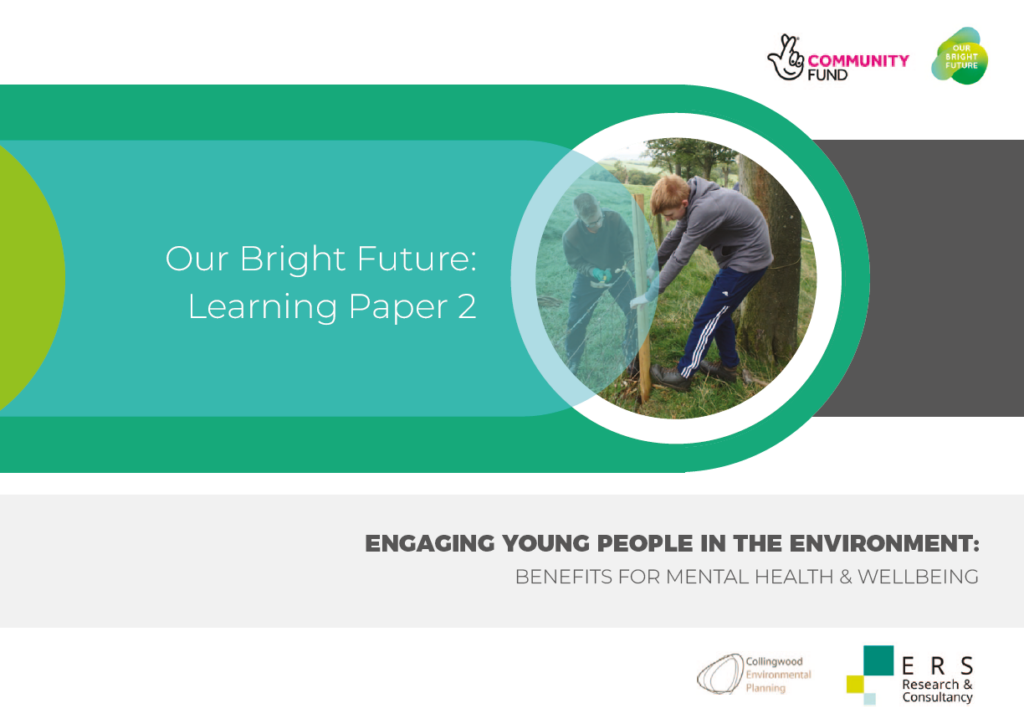
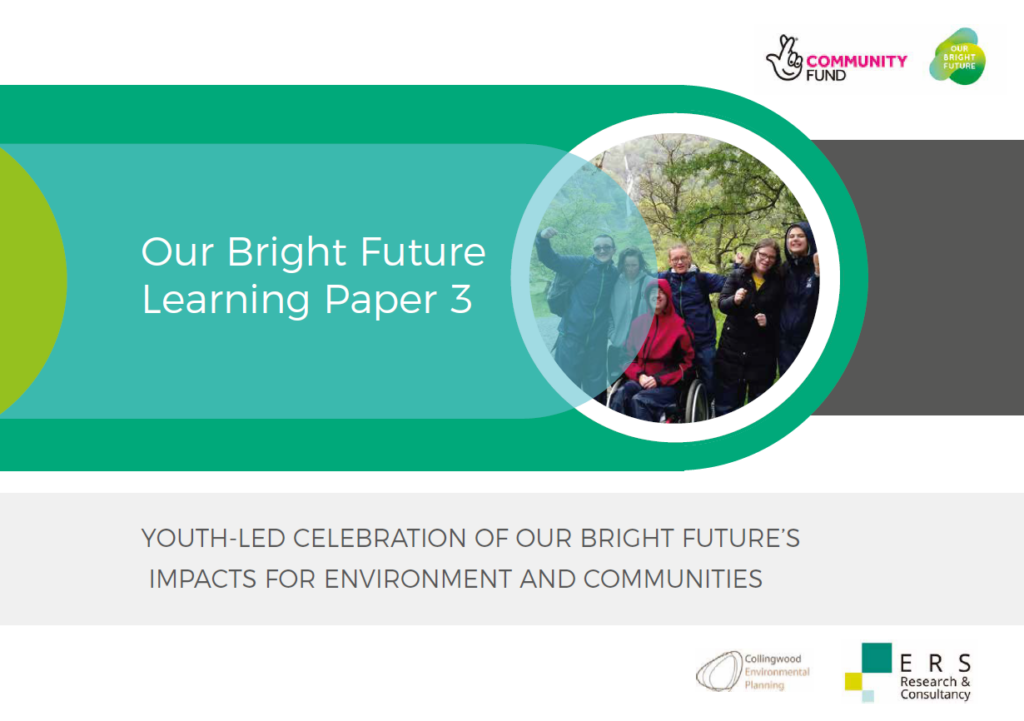
Learning paper 3 Youth-led celebration of Our Bright Future’s impacts for environment and communities
This learning paper focuses on the stories of two projects and how they benefitted the environment and local communities. The conclusion section of this paper pulls together findings from both case studies and presents them in the context of learning from the wider programme.
Learning paper 4 Engaging young people in the environment: achievements, what worked, lessons learned
Spending time in the natural environment offers a range of well-documented benefits. This learning paper presents we have learned about how to successfully interest and engage young people in natural environments: what works, for whom, and why. We hope lessons may inform future project work in terms of recruitment and retention.
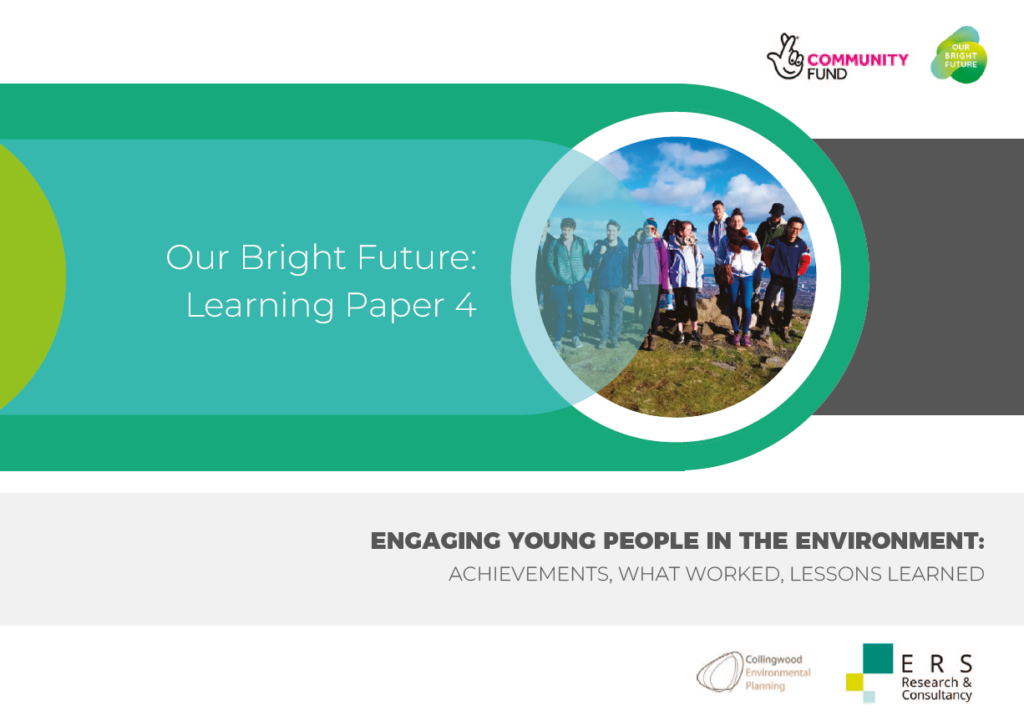
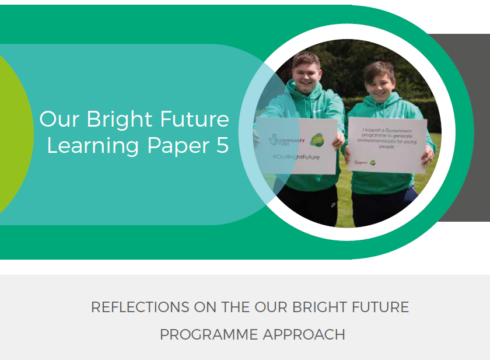
Learning paper 5 Reflections on the Our Bright Future programme approach
This paper sets out key reflections about the Our Bright Future programme approach. Evidence is taken from interviews with those directly involved, as well as drawing on other writing about programme management and partnership working.
Learning paper 6 Young people in governance roles: achievements and learning from Our Bright Future
This paper shows how Our Bright Future’s youth-led approach has influenced youth governance and/or leadership across project and partner organisations. It explores ways that involvement in Our Bright Future may have influenced organisational processes for involving young people in leadership and decision-making. We hope this paper will assist others in developing similar youth-led roles and youth governance processes or structures within their organisation.
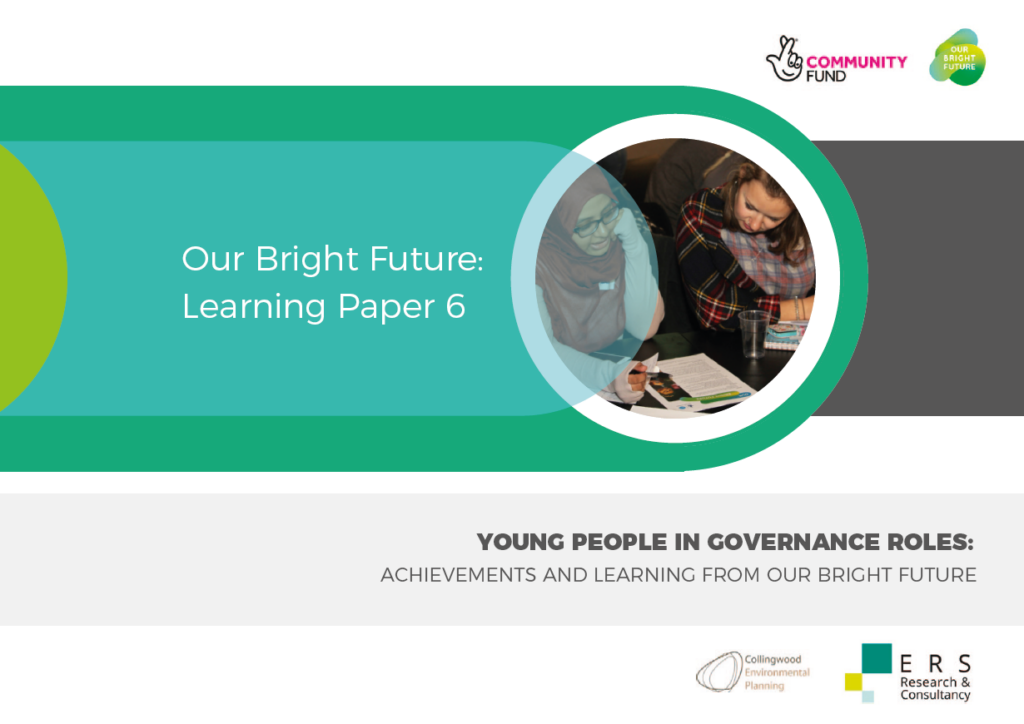
The three studies below, published in March 2021 were intended to inform the ongoing delivery of Our Bright Future projects and other projects across the youth and environment sectors. They are relevant to practitioners, policy makers and organisations seeking to engage young people in the environment, both in practical and theory-based activities.
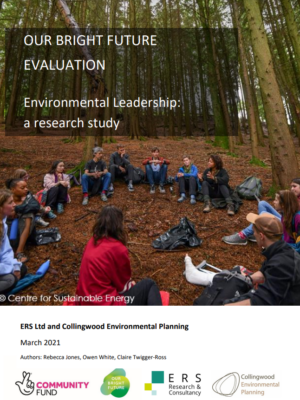
Environmental Leadership Study
This study gathered data directly from participants and examined to what extent, and in what ways they feel that they are able and motivated to act as environmental leaders.
If you would like to view the Executive summary only, you can find it here.
Impacts for Participants
This study examined how Our Bright Future has directly affected young people’s lives. The research sought to evidence the strength of the link between participation in the programme and employability, employment, participation in social action, improved well-being and self-confidence.
If you would like to view the Executive summary only, you can find it here.
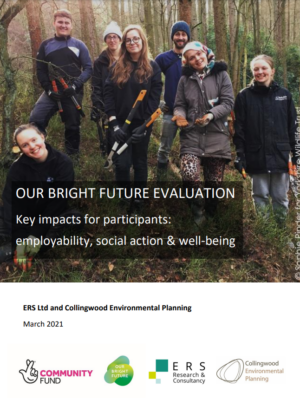
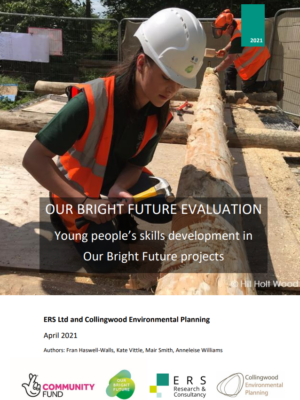
Skills study
This study explored young people’s development of skills across Our Bright Future projects. The study gives insight into which skills young people gained as well as how these skills gains were achieved.
If you would like to view the Executive summary only, you can find it here.
Mid-term report
This report, published in 2019, presents the findings of the mid-term independent evaluation of the programme. The mid-term evaluation covered the first three years of the programme focussing on the period from set-up in June 2016 to December 2018
If you would like to view the Executive summary only, you can find it here.
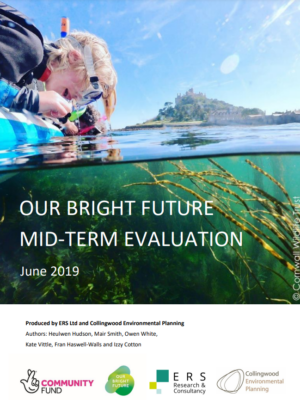
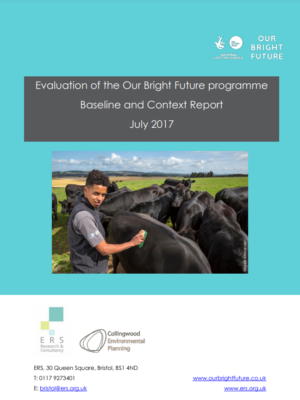
Baseline and context report
This report, published in 2017, set the scene for subsequent evaluation reports. It outlines the starting position, both from a programme and project perspective. This report also reflects on early learning relating to the set-up phase.
If you would like to view the report, you can find it here.
Project evaluation reports
As well as the programme evaluation, each of the 31 projects are undertaking evaluations of their work and providing final evaluation reports. Click here for a list of reports that are available for download.
